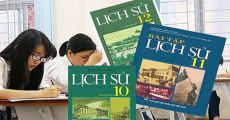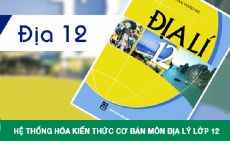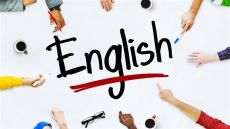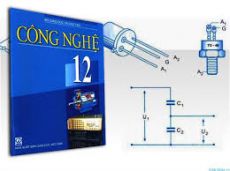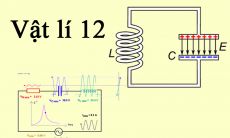Đề thi thử THPT QG năm 2021 môn Tiếng Anh
Trường THPT Võ Trường Toản
-
Câu 1:
Indicate the word whose underlined part differs from the other three in pronunciation: established, destroyed, encouraged, remembered
A. established
B. destroyed
C. encouraged
D. remembered
-
Câu 2:
Indicate the word whose underlined part differs from the other three in pronunciation: savour, devour, favour, flavour
A. savour
B. devour
C. favour
D. flavour
-
Câu 3:
Indicate the word that differs from the other three in the position of primary stress: ailment, process, velcro, address
A. ailment
B. process
C. velcro
D. address
-
Câu 4:
Indicate the word that differs from the other three in the position of primary stress: dominant, introduce, faraway, dishwasher
A. dominant
B. introduce
C. faraway
D. dishwasher
-
Mark the letter A, B, C, or D to indicate the correct answer to each of the following questions.
Câu 5:
After standing in the sun for more than an hour, two of the people in the queue ______ out and they __________to after some women threw water in their faces.
A. turned/went
B. put/threw
C. came/turned
D. passed - came
-
Câu 6:
We expect Linh _____ to the airport late as the plane will take off in 15 minutes.
A. to come
B. not to come
C. not coming
D. coming
-
Câu 7:
Befriending can offer volunteers the opportunity to provide support and friendship to a person who may be going _____ a difficult period.
A. up
B. on
C. off
D. through
-
Câu 8:
_____ noodles are a precooked and usually dried block invented by Japanese.
A. Instantaneous
B. Instance
C. Instant
D. Instantly
-
Câu 9:
Christmas Eve is _____ best time for Japanese youngsters to go out for _____ special, romantic evening.
A. a-a
B. the-a
C. the-the
D. a-the
-
Câu 10:
Though _____ many centuries ago, the palace remains practically intact.
A. building
B. to build
C. built
D. people built
-
Câu 11:
I didn't know you were asleep. Otherwise, I _____ so much noise when I came in.
A. didn't make
B. wouldn't have made
C. won‘t make
D. don't make
-
Câu 12:
The little girl started crying. She _____ her doll, and no one was able to find it for her.
A. has lost
B. had lost
C. was losing
D. was lost
-
Câu 13:
The house was empty when I arrived. They __________.
A. must have gone to bed
B. should have gone to bed
C. would have gone to bed
D. need have gone to bed
-
Câu 14:
If the bride's father _____ the car for the wrong time, she _____ at the Church by now.
A. hadn’t booked/would have been
B. didn't book/would have been
C. hadn't booked/would be
D. hadn’t booked/had been
-
Câu 15:
John will never buy you a drink - he's far too _________.
A. tight-fisted
B. pig-headed
C. highly-strung
D. easy - going
-
Câu 16:
Study much harder ________.
A. if you will pass the exam
B. unless you pass the exam
C. or you won't pass the exam
D. and you pass the exam
-
Câu 17:
The _____ polluted atmosphere in some industrial regions is called "smog".
A. widely
B. largely
C. fully
D. heavily
-
Câu 18:
They are conducting a wide _____ of surveys throughout Vietnam.
A. collection
B. range
C. selection
D. group
-
Mark the letter A, B, C, or D to indicate the word(s) CLOSEST in meaning to the underlined word in each of the following questions
Câu 19:
She was so happy when he got down on bended knee and popped the question.
A. asked her out
B. asked her to be on a date
C. asked her to give him some money
D. asked her to marry him
-
Câu 20:
An organization for Educational Development co-operated with our school to establish free English classes for the poor in the area.
A. put away
B. put off
C. set off
D. set up
-
Mark the letter A, B, C, or D to indicate the word(s) OPPOSITE in meaning to the underlined word(s) in each of the following questions.
Câu 21:
The major shortcoming of ASEAN as an organization is the inability to go through many declarations, agreements, and instruments that they have proliferated over the years.
A. advantage
B. benefit
C. drawback
D. success
-
Câu 22:
Most of the Imperial Citadel of Thang Long was demolished in the early 20th century
A. rebuilt
B. pulled down
C. put up
D. pulled up
-
Mark the letter A, B, C, or D to indicate the sentence that best completes each of the following exchanges.
Câu 23:
Son: “I've been awarded a scholarship to Harvard University.”
Mum: “_________________________.”
A. Just kidding!
B. It's up to you.
C. Good job!
D. Same to you Thanks!
-
Câu 24:
Lam: "I'm really fed up with work at the moment. I need a break."
Linh: “__________________________.”
A. Why shouldn't you take next Friday off and have a long weekend in Paris or Amsterdam?
B. I would advise you to take next Friday off and have a long weekend in Paris or Amsterdam.
C. Why don't you take next Friday off and have a long weekend in Paris or Amsterdam?
D. You're highly recommended taking next Friday off and have a long weekend in Paris or Amsterdam.
-
Read the following passage and mark the letter A, B, C, or D to indicate the correct word or phrase that best fits each the numbered blanks.
Cultural beliefs differ as to whether directness or indirectness is considered positive. In the mainstream American culture, the ideal (25) ____ of communication includes being direct rather than indirect (“ideal" here means that the culture values this style, although not everyone speaks directly). There are several expressions in English (26) ____ emphasize the importance of being direct: “Get to the point! Don't beat around the bush! Let's get down to business!" These sayings all indicate the importance of dealing directly with issues rather than (27) ____ them. One way to determine whether a culture favors a direct or indirect style in communication is to find out how the people in that culture express disagreement or how they say, “No”. In Japan, there are at least fifteen ways of saying “No”, without actually saying the word. Similarly, in Japan, it would be (28) ____ rude to say directly “I disagree with you” or “You're wrong”.
Many Americans believe that "honesty is the best policy" and their communication style reflects this. Honesty and directness in communication are strongly related. It is not a (29) ____, then, to find out that cultural groups misjudge each other based on different beliefs about directness and honesty in communication.
Câu 25:
(25).......................
A. word
B. shape
C. form
D. phrase
-
Câu 26:
(26)...................
A. that
B. what
C. whether
D. when
-
Câu 27:
(27)........................
A. deciding
B. supporting
C. observing
D. avoiding
-
Câu 28:
(28)......................
A. recommended
B. considered
C. accepted
D. expressed
-
Câu 29:
(29)......................
A. surprise
B. connection
C. passage
D. system
-
Read the following passage and mark the letter A, B, C, or D to indicate the answer to each of the question.
According to The Official Guide to the Quidditch World Cup – produced by the International Confederation of Wizards Quidditch Committee (ICWQC) and available through all reputable wizarding bookstores for what many feel is the ridiculously overpriced sum of thirty nine Galleons – the tournament has been held every four years since 1473. As with so much else about the wizarding world’s most important sporting competition, many query the accuracy of this statement.
As only European teams competed during the fifteenth and sixteenth centuries, purists prefer to date the Quidditch World Cup’s inception from the seventeenth century when it became open to all continents. There is also heated debate about the accuracy of some historical accounts of tournaments. A substantial amount of all post-game analysis centres on whether magical interference took place and whether it made, or ought to have made, the final result moot.
The ICWQC has the unlucky job of regulating this contentious and anarchic competition. The rulebook concerning both on- and off-pitch magic is alleged to stretch to nineteen volumes and to include such rules as “no dragon is to be introduced into the stadium for any purpose including, but not limited to, team mascot, coach or cup warmer” and “modification of any part of the referee’s body, whether or not he or she has requested such modification, will lead to a lifetime ban from the tournament and possibly imprisonment.”
A source of vehement disagreements, a security risk for all who attend it and a frequent focus for unrest and protest, the Quidditch World Cup is simultaneously the most exhilarating sporting event on Earth and a logistical nightmare for the host nation.
Câu 30:
Which best serves as the title for the passage?
A. The Quidditch World Cup.
B. The least infamous tournament.
C. Magical or not is depending on you.
D. The history that never existed.
-
Câu 31:
The word “query” in paragraph 1 is closest in meaning to ______.
A. quiz
B. inquire
C. object
D. question
-
Câu 32:
According to paragraph 2, what does most of the after-game discussion mainly concern?
A. The effect of illegal magic devices on the well-being of players.
B. The debate, dispute, or uncertainty concerning the fair play issues.
C. The influence of magic usage on the outcomes of the game.
D. The conflict between supporters of each team in case of misunderstanding.
-
Câu 33:
According to paragraph 3, what is NOT mentioned about the Quidditch guidebook?
A. It maintains that dragon the mythical creature is excluded from the competition area.
B. No match will commence in the event of extreme natural or magical weather.
C. It forbids any kind of alterations on the umpire’s body under any circumstances.
D. There currently exist nineteen tomes in the series of ICWQC rulebook.
-
Câu 34:
The word “it” in paragraph 4 refers to _______.
A. risk
B. event
C. source
D. nation
-
Read the following passage and mark the letter A, B, C, or D to indicate the answer to each of the question.
Australia has a well-organized and well-structured education system. The education starts at the age of five or six, but it may differ by a narrow margin between states. It starts with the preschool education which is not compulsory and can be offered within a school or separately. The primary and secondary school encompasses the compulsory education for Australians. There are a large number of primary and high school across the country with most of them being public schools. It is estimated that public schools amount to 60% of scholars as opposed to 40% in private settings. All these education providers must be licensed by the government and must fulfill certain requirements including infrastructure and teaching. Universities, on the other hand, are mainly public institutions.
The Australian education system has established a standard curriculum so all scholars will be given the same quality of education. Despite there may be some states at which this curriculum is modified a bit, but the change is not that significant. The actual curriculum set out in Australia education system is based on important abilities one must have in his life: Literacy, Numeracy, Information and communication technology, Critical and creative thinking, personal and social capability, ethical understanding, intercultural understanding.
Vocational and Technical schools prepare students that want to skip the university and want to move directly to the job market. Actually, here it stands the difference between universities and colleges: the Vocational and Technical Schools are more oriented in teaching practical skills while university courses are mainly theory-based to lead students to different academic careers. There are hundreds of other schools out there that provide technical and further education (TAFE) and vocational education and training (VET). These schools offer short courses, certificates I through IV, diplomas, and advanced diplomas. They focus on training their students in a particular vocation or just to help their students get out into the workplace. These schools offer a wide variety of courses and qualifications attained by these courses can lead to different career pathways to follow afterward.
Australian higher education modernity and reputation relies on a huge number of educational providers including universities and different training organizations. Currently, there are 43 universities across the country. The vast majority of universities are public except two private universities. The world-class teaching offered is surely undisputed. Seven Australian universities are traditionally found at the top 100 best universities in the world which is a sufficient indicator to highlight their quality.
Besides universities, more than 5,000 training organizations are registered and accredited. Actual figures show that the number of enrolled students is around 3.8 million with international students sharing more than half a million. There are also 3 self-accrediting higher education institutions. Furthermore, dozens of smaller schools do not grant any degrees or have an accreditation – these are private schools that focus on theology, business, information technology, natural therapies, hospitality, health, law, and accounting.
Câu 35:
Which of the following could be the main topic of the passage?
A. The levels of education in Australia.
B. The Australian education system.
C. The curriculum of schools in Australia.
D. The position of Australian schools in the world.
-
Câu 36:
According to paragraph 1, which of the following is TRUE about the education in Australia?
A. Children must start schools when they are five years old.
B. Pre-school education is not optional for Australian children.
C. There are more students attending public schools than private schools.
D. Every education provider can start up their school without any requirements
-
Câu 37:
What is the curriculum of the Australian education system based on?
A. It focuses on necessary skills that students must be prepared for their life.
B. It is based on essential abilities like reading, writing and numbers.
C. It concentrates on knowledge and technology for students.
D. It depends on the quality of education that the schools provide.
-
Câu 38:
According to paragraph 3, the main difference between universities and Vocational and Technical schools is that _______________.
A. the Vocational and Technical schools pay more attention to academic careers than the other.
B. the Vocational and Technical schools provide more courses for students to choose than the other.
C. universities provide practical skills for students to take part in the workforce while Vocational and Technical schools only help them with theory.
D. universities emphasize theoretical courses whereas the Vocational and Technical schools tend to develop practical skills.
-
Câu 39:
The word “They” in paragraph 3 refer to _________.
A. these schools
B. short courses
C. diplomas
D. advanced diplomas
-
Câu 40:
The word “reputation” in paragraph 4 is closest in meaning to ____________.
A. obscurity
B. renown
C. difference
D. stability
-
Câu 41:
The word “undisputed” in paragraph 4 could be best replaced by __________.
A. questionable
B. doubtful
C. undeniable
D. unacknowledged
-
Câu 42:
What can be inferred from the passage?
A. Australia is an ideal place for not only Australian students but also international ones to study.
B. There are more and more international students choosing Australian universities to attend.
C. Because of the fame in the world, more universities and training organizations are established each year.
D. Students in Australia prefer Vocational and Technical schools than others.
-
Mark the letter A, B, C or D to indicate the underlined part that needs correction in each of the following questions.
Câu 43:
Human infants born with about 270 bones, some of which fuse together as their body develops.
A. born
B. which
C. fuse
D. develops
-
Câu 44:
The man, together with his family, were invited to the Clambake last night.
A. The
B. together with
C. were
D. to the
-
Câu 45:
Today's students also appear more formerly dressed and conservative- looking these days.
A. Today's
B. also
C. more formerly dressed
D. these days
-
Mark the letter A, B, C, or D to indicate the sentence that is closest in meaning to each of the following questions.
Câu 46:
Pho (rice noodles) is believed to be the most typical food in Viet Nam.
A. It is believed that Pho (rice noodles) is the most typical food in Viet Nam.
B. A more typical food than Pho (rice noodles) is believed in Viet Nam.
C. I believe that Viet Nam has the most typical food like Pho (rice noodles).
D. No food in Viet Nam is less typical than Pho (rice noodles).
-
Câu 47:
"I’ll take the children to the park," said the husband to his wife.
A. The husband asked the wife to take the children to the park.
B. The husband offered to take the children to the park.
C. The husband insisted on taking the children to the park.
D. The husband requested to take the children to the park.
-
Câu 48:
Nancy failed to understand what the story was about until she saw the film based on it.
A. Nancy doesn't understand what the story is about.
B. Not until she saw the film based on it did Nancy understand what the story was about.
C. It was until she saw the film based on it that Nancy understood what the story was about.
D. Nancy went to see the film before she read the story.
-
Mark the letter A, B, C, or D to indicate the sentence that best combines each pair of sentences in the following questions.
Câu 49:
We had a good goalkeeper. We didn’t lose the final match.
A. We had a good goalkeeper, so we lost the final match.
B. If it hadn't been for the good goalkeeper, we would have lost the final match.
C. We didn't lose the final match unless we had a good goalkeeper.
D. We lost the match even if we had a good goalkeeper.
-
Câu 50:
Enormous efforts have been made. People want to find a cure for this disease.
A. Enormous efforts have been made; however, people want to find a cure for this disease.
B. Enormous efforts have been made, so people want to find a cure for this disease.
C. Although enormous efforts have been made, people want to find a cure for this disease.
D. Enormous efforts have been made to find a cure for this disease.




